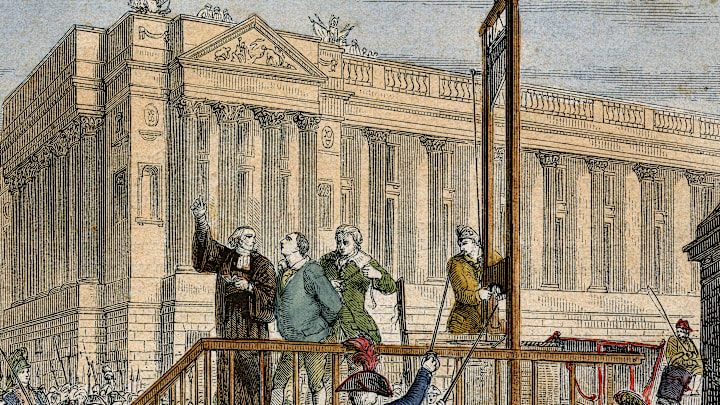
Agis IV of Sparta
"Cease weeping; for even though I am put to death in this lawless and unjust manner, I have the better of my murderers."
Agis IV inherited control over Sparta from his father in 245 BC, and he was one of the earliest European monarchs to be executed. While Sparta was known for its discipline and for its citizens' reserved lifestyles, an influx of wealth created a significantly more unbalanced and corrupt environment.
He initiated major programs to remove the wealthy from their positions of power and expand citizenship, which was a predictably unpopular stance. This led to a lot of civil unrest, and when Agis left Sparta to help Aratus of Sicyon in battle, he created a power vacuum for his enemies to fill. After returning, Agis was imprisoned and then executed, along with his mother and grandmother.
According to Plutarch in The Life of Agis, the executioners were reluctant to kill the King. When one cried, Agis comforted him with an assurance that those who had betrayed him would suffer more than he would. His mother, Agesistrate, is cited as having said, "My only prayer is that this may bring good to Sparta," before her own death.

Emperor Phocas of Byzantium
"Will you govern it any better?"
Phocas was one of many warrior emperors to rise to power in Byzantium. Unhappy with the way the empire was being run, the military deposed and eventually killed the previous Emperor, Maurice. They replaced him with one of their own, who they hoped they could control.
Emperor Phocas ruled from 602 to 610 AD, but he was disliked for his religious persecutions and his inability to stop the Persians from invading. The leader of Carthage sent his son, Heraclius, to execute the emperor and take his place.
Sources differ on precisely how Phocus was killed, but it was undoubtedly brutal, including dismemberment, possible flaying, and burning. According to A History of the Middle Ages, 300–1500, his last words were spoken to Heraclius, asking whether the other man could truly rule better than he had.
